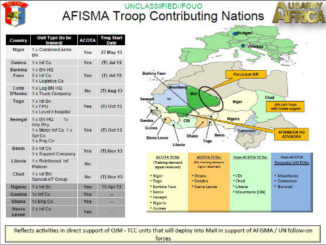
Washington’s Back-to-the-Future Military Policies in Africa: A New Model for Expeditionary Warfare
Source: Tom Dispatch
Lion Forward Teams? Echo Casemate? Juniper Micron?
You could be forgiven if this jumble of words looks like nonsense to you. It isn’t. It’s the language of the U.S. military’s simmering African interventions; the patois that goes with a set of missions carried out in countries most Americans couldn’t locate on a map; the argot of conflicts now primarily fought by proxies and a former colonial power on a continent that the U.S. military views as a hotbed of instability and that hawkish pundits increasingly see as a growth area for future armed interventions.

